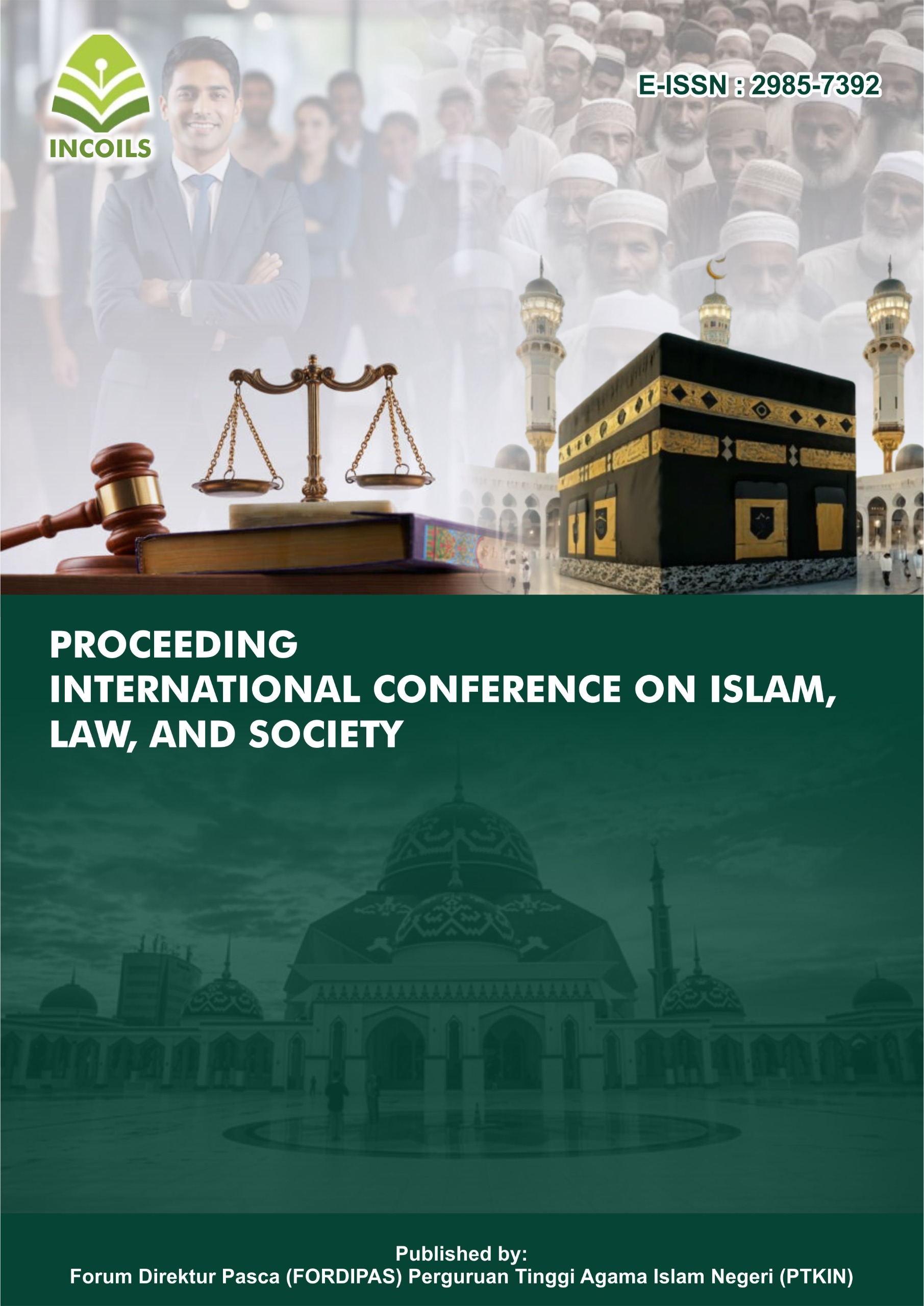MATERIALS DEVELOPMENT TEACHING MATHEMATICS PHET VIDEO BASED ON THE CONCEPT OF FRACTIONAL NUMBERS FOR CLASS IV STUDENTS
DOI:
https://doi.org/10.70062/incoils.v3i1.129Keywords:
Teaching materials, Mathematics, PhET, Fractional NumbersAbstract
This research answers the low student learning outcomes due to less interesting learning. This research aims to develop mathematics teaching materials based on PhET Interactive Simulation videos and obtain PhET videos that are valid, practical, and effective. The research method used is the Research and Development (R&D) method with the ADDIE model which includes analysis, design, development, implementation, and evaluation stages. The subjects of this research were 28 class IV students at MI Tegalwaton, Tengaran District. Data collection techniques used were interviews, FGD, questionnaires, and documentation. The validation stage of teaching materials is carried out by asking for assessments from material experts and media experts. The average result of the material expert assessment was 91.5% which was in the very valid category and the result of the media expert assessment was 83.4% which was in the very valid category. The results of student responses in the limited trial were 89.5% in the very effective category and in the extensive trial, it was 88.63% in the very effective category. The students' pretest results got an average score of 69.2 and the students' posttest results got an average score of 79.6. There was an increase in the learning outcome scores between the students' pretest and posttest so the learning videos developed were considered effective. So it can be stated that this PhET video is valid, practical, and effective.
References
Arikunto, S. (2009). Evaluation of Educational Programs Practical Theoretical Guidelines for Students and Practical Education (Cet. 1). Sayo Raya.
Arinda, Y., Wilujeng, I. Kuswanto, H. (2019) Application of the Group Investigation (GI) Learning Model helps Phet Facilitate Students' Scientific Work Skills. Review of International Journal of Educational Research, 4(2), 254-261.
Arisandy, D., Marzal, J., & Maison, M. (2021). Development of Educational Games Using Construct 2 Software with the Help of Phet Simulation Oriented to Students' Creative Thinking Abilities. Scholar's Journal: Journal of Mathematics Education, 5(3), 3038–3052.
Branch, R. M. (2009). Instructional design: The ADDIE approach. Jumper.
Chotimah, C. & Festiyed. (2020). Meta-analysis of the effect of using PhET interactive simulations on worksheets on high school students' physics learning outcomes. Journal of Physics: Conference Series, 1481(1), 012093. https://doi.org/10.1088/1742-6596/1481/1/012093
Fitria, Y. (2017). DevelopmentProblem Based Teaching Materials for Class V Elementary School Students. Ta'dib Journal, 20(2), 8.
Hollil, S., Makhrus, M., & Verawati, NNSP (2022). Development of PhET-Based Video-assisted Instruction Model Anchored Learning Tools to Improve Students' Mastery of Particle Dynamics Material Concepts. Scientific Journal of the Educational Profession, 7(2), 354–360.
Jippes, E., van Engelen, J. M. L., Brand, P. L. P., & Oudkerk, M. (2010). Competency-based residency training program (CanMEDS) in radiology: Systematic design procedures, curriculum and success factors. European Radiology, 20(4), 967– 977. https://doi.org/10.1007/s00330-009-1623-z
Kania, N. (2018). Props for Understanding the Concept of Fractions. 2(2).
Khaesarani, IR, & Hasibuan, EK (2021). Literature Study Regarding the Think Pair Share (TPS) Learning Model in Improving Student Mathematics Learning Outcomes. Wahana Mathematics and Science: Journal of Mathematics, Science and Learning, 15(3), 13.
Kusniati, T. (2020). Improving the Learning Outcomes of Fraction Number Counting Operations Using Number Cards for Class VI Students of SDN 3 Mangliawan, Pakis District, Malang Regency. Buana Pendidikan: Journal of Teacher Training and Education, 16(29), 52–64. https://doi.org/10.36456/bp.vol16.no29.a2269
Magdalena, I., Sundari, T., Nurkamilah, S., & Nasrullah. (2020). Analysis of Teaching Materials. Journal of Education and Social Sciences, 2(2).
Nababan, N. (2020). Development of Geogebra-Based Learning Media Using the Addie Development Model in Class XI SMAN 3 Medan. 6(1).
Pajarwati, A., Pranata, OH, & Ganda, N. (2019). Using Fraction Card Media to Improve Students' Understanding of Comparing Fractions. Pedadidaktika: Scientific Journal of Primary School Teacher Education, 6(1), 90–100.
Prima, EC, Putri, AR, & Rustaman, N. (2018). Solar system learning uses PhET simulations to increase student understanding and motivation. Journal of Science Learning, 1(2), 60. https://doi.org/10.17509/jsl.v1i2.10239
Putra, A., Istiningsih, S., & Dewi, NK (2022). Development of Comic-Based Teaching Materials for Social Sciences Content. 4, 7.
Rawa, NR, Niftalia, I., & Widiastika, IG (2018). Development of Mathematics Teaching Materials for Inquiry Learning Models Assisted by Phet Simulation Devices to Improve the Mathematical Communication Skills of Class VII Middle School Students.
Saputro, B. (2017). Management of Research and Development (Research and Development) for the preparation of theses and dissertations (Cet. 1). Aswaja Pressindo.
Sholeh, M., & Sutanta, E. (2019). Assistance in the Development of Teaching Materials with Videoscribe for Tembarak Vocational School Teachers, Temanggung. ABDIMAS BSI Journal, 2(1), 9.
Sugiyono. (2020). Research and development methods: Research and development/R&D
(Cet.3). Alphabet.
Downloads
Published
How to Cite
Issue
Section
License

This work is licensed under a Creative Commons Attribution-ShareAlike 4.0 International License.







